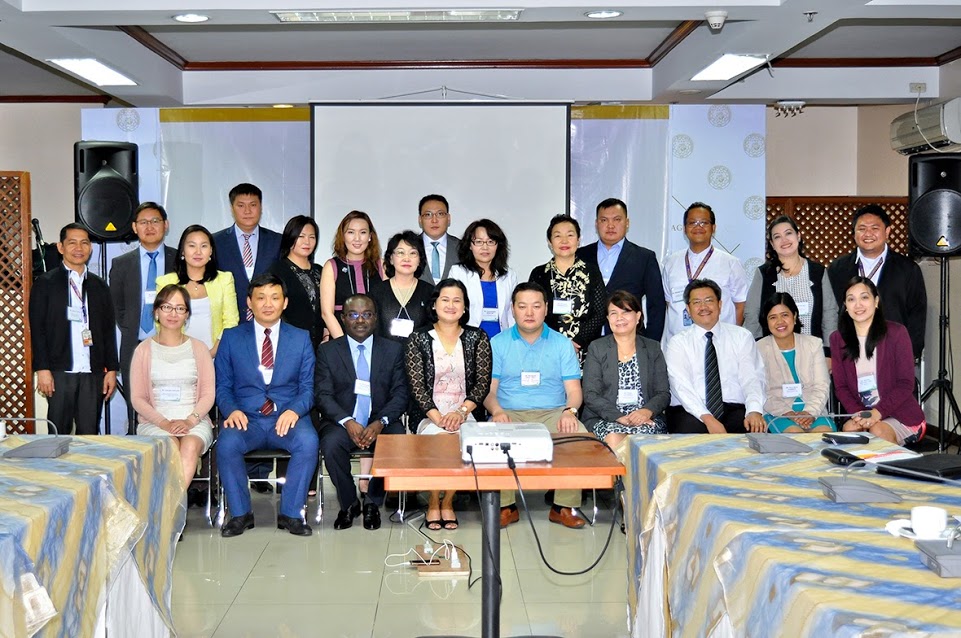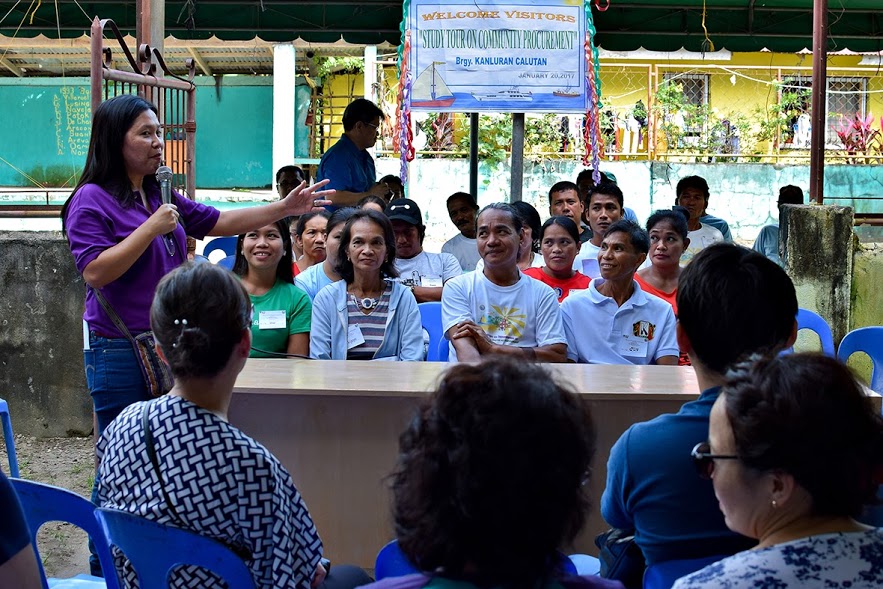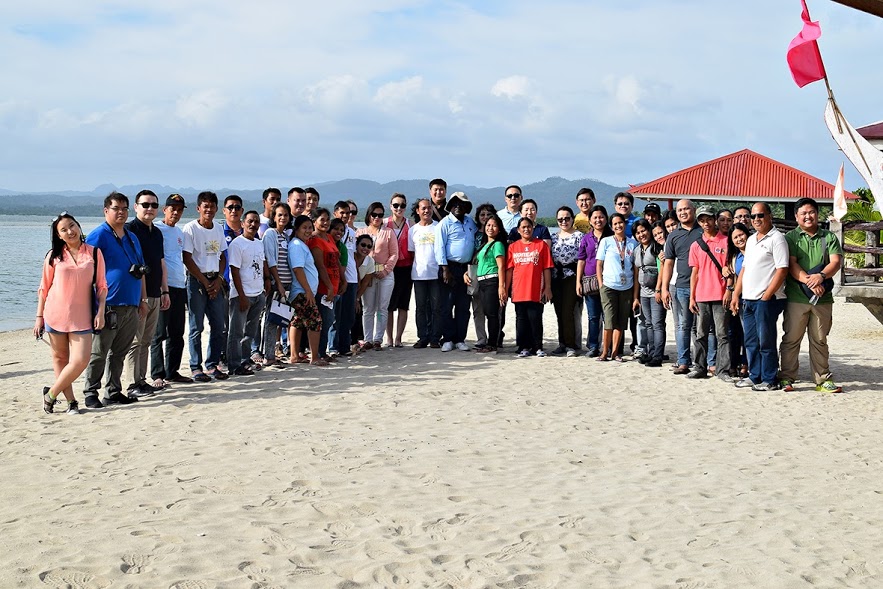
The Mongolian delegation headed by Mr. Altangerel Dagvadorj.
Last November 2016, during the ASEAN Countries Procurement Knowledge Exchange Forum in Myanmar, the World Bank Group in Vietnam through Mr. Adu-Gyamfi Abunyewa, requested PS Executive Director Bingle Gutierrez who attended said forum if the Philippines would so kindly accommodate a study visit from Mongolia and Vietnam to learn more about our country’s public procurement reforms.
Through the joint efforts of the Procurement Service-Philippine Government Electronic Procurement Office, the Technical Services Office of the Government Procurement Policy Board and the World Bank Groups in the Philippines and Vietnam, the Mongolia delegation headed by Mr. Altangerel Dagvadorj was welcomed on January 18, 2017. The delegates came from Mongolia’s Government Agency for Policy Coordination on State Property, the Ministry of Finance and from the Procurement Education NGO.
The study visit program was crafted to respond to the priority learning interest of the group which include:
1. How procurement data are used by stakeholders including civil society to monitor performance of contractors and service providers;
2. How the open contracting requirements have been integrated into the public procurement system, specifically through the eprocurement system to produce valuable information;
3. A site visit in a community to interact with relevant stakeholders and beneficiaries on how procurement data brings enhanced transparency to public procurement.
4. Open contracting initiatives. The “Open Contracting” initiative is based on the idea that citizens should be able to evaluate the contracts that their governments enter into with the private sector and the ways these agreements are awarded and implemented
DBM Undersecretary Janet Abuel formally welcomed the delegates at the DBM Executive Lounge and spoke of how government continues to find ways and pursue other initiatives to enable meaningful freedom of information, including technologies that will automate the processing and public disclosure of data, as well as clearer and faster mechanisms for public requests for data and documents. She informed the delegates that curb corruption can be curbed more successfully and public institutions strengthened if citizens are given greater access to official information. In the Philippines’ case, this was fulfilled in July 2016 when President Rodrigo Duterte signed the Freedom of Information Act (FOI Act) - a landmark order that would require all government offices under the executive branch to disclose details of their transactions. Such move would promote transparency and strengthen public participation in governance.

DBM Undersecretary Janet Abuel hands over the DBM and PS-PhilGEPS token to the delegates.
The first day of the study tour was dedicated to lectures on the public procurement reform initiatives as presented by Deputy Executive Director of the GPPB-TSO Atty. Melissa Santiago-Yan. Executive Director Bingle Gutierrez and Deputy Executive Director Rosa Maria Clemente followed with presentations on the Procurement Service and the Philippine Government Procurement System (PhilGEPS). Through the Procurement Service-PhilGEPS, the Philippines maximizes the use of technology in making relevant data accessible and usable to all – including citizens, auditors and civil society groups. Before leaving the DBM office, the delegation paid a courtesy call to Undersecretary Laura Pascua.

PS-PhilGEPS Executive Director Bingle B. Gutierrez talks about the Procurement Service.

PS-PhilGEPS Deputy Executive Director Rosa Maria M. Clemente presents the Philippine Electronic Procurement System (PhilGEPS).

Deputy Executive Director Melissa Santiago-Yan discusses public procurement reform initiatives.
The second day of the delegate’s study tour was hosted by the Government Procurement Policy Board Technical Support Office. The discussions focused on the role of non-government organizations (NGOs) and civil society organizations (CSOs) in enhancing procurement reforms. The lecturers include Mr. Leo Querubin, President of the Philippine Computer Society, Ms. Vivien Suerte-Cortez, formerly of Procurement Watch Inc. and now connected with Making All Voices Count and Ms. Amelia Mancera from GWATCH. Director Gloria Jose of the Commission on Audit also gave a talk on Citizen’s Participatory Audit. NGOs and CSOs help ensure transparency and improve the integrity of the procurement process and competition and serve also as an accountability mechanism. NGO and CSO observers are required by law to post observers report as a feedback to the procuring entity and other government agencies and such contribute in the exchange and sharing of information for policy improvements.
Resource speakers from different Non-government Organizations (NGOs) and Civil Society Organizations (CSOs) shares the role of NGOs and CSOs in public procurement.
For their final day in the country, the delegates were brought to Agdangan, Quezon to visit a KALAHI-CIDSS project site of DSWD. A major feature of this project is the implementation by community sub-project beneficiaries of a community/customized procurement and monitoring and evaluation systems. Kapit-Bisig Laban sa Kahirapan – Comprehensive Integrated Delivery of Social Service (KALAHI-CIDSS) is a community-driven development project implemented by the Department of Social Welfare and Development. Under KALAHI-CIDSS, communities and their Local Government Units (LGUs) are trained to choose, design and implement sub-projects that address their most pressing need. The development objective of KALAHI-CIDSS is the empowerment of local communities through their involvement in the design and implementation of poverty reduction projects and improved participation in local governance.

The Mongolian delegation’s courtesy call to Agdangan, Quezon Mayor Rhadam Aguilar.

A discussion with KALAHI-CIDSS recipients and volunteers of Barangay Kanluran Calutan, Agdangan, Quezon.

The delegation visits the Agdangan Beach.




